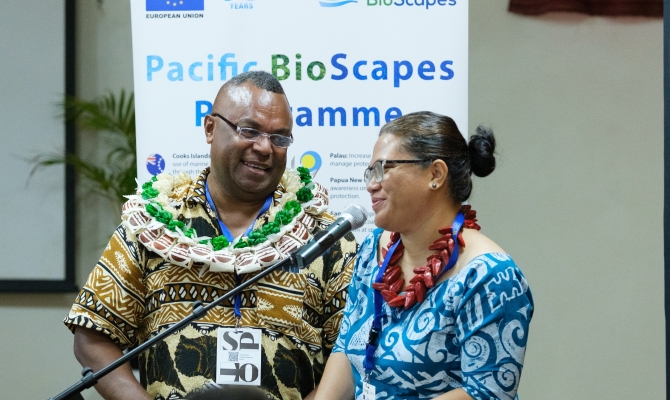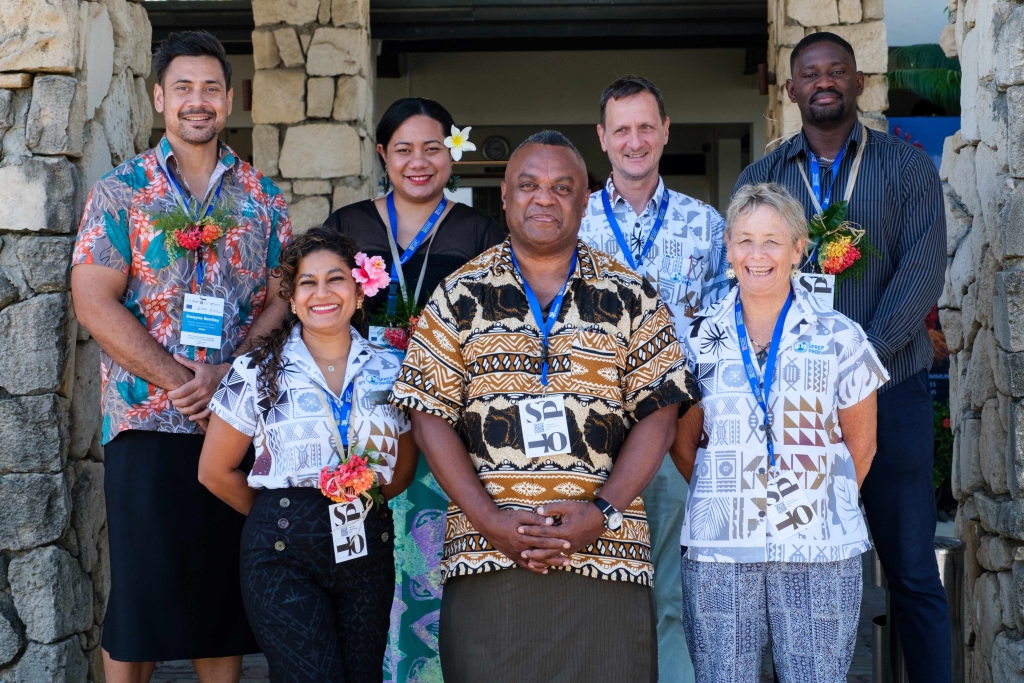
24 May 2024, Nadi Fiji – The Secretariat of the Pacific Regional Environment Programme (SPREP) has reaffirmed its commitment to implement elements of the Pacific 2030 Sustainable Tourism Policy Framework, which provides the vision, policies and actions needed to transform tourism to make it more sustainable and provide greater benefits to the communities of the Pacific.
It follows a regional stakeholder consultation with the Pacific Tourism Organisation (SPTO), where SPREP’s four programmes, Climate Change Resilience, Environmental Monitoring and Governance, Island and Ocean Ecosystems and Waste Management and Pollution Control were engaged during a two-day workshop in Nadi, Fiji.
The meeting was well attended by tourism representatives across the region as well as international partners. The Chief Executive Officer for SPTO, Mr. Christopher Cocker welcomed SPREP’s engagement.
“Each of SPREP’s programmes added immense value to the consultations we’ve had in the lead up to, and during the last two days, providing a Pacific context to issues of sustainability beyond just environmental considerations,” he said. “Tourism depends on a healthy natural environment. This collaboration with SPREP shows the value of working together and the significant role of tourism stakeholders in protecting and safeguarding our island and ocean ecosystems from the potential negative impacts of tourism development.”

SPREP Director of the Environmental Monitoring and Governance Programme, Mr. Jope Davetanivalu, said SPREP’s engagement is reaffirmation of its commitment to authentic Pacific partnerships.
“Sustainable tourism development and protection of the natural environment which draws tourists to the region is vital for the recovery of and long-term success of the tourism industry in the region,” said Mr Davetanivalu. “Collaborating on this workshop with SPTO is an affirmation of SPREP’s commitment to authentic Pacific partnerships and delivers on the Memorandum of Understanding that the two regional partners renewed at the 52nd Pacific Island Forum Leaders Meeting in the Cook Islands in 2023.”
The Island and Ocean Ecosystems Programme presented the Regional Marine Tourism Guidelines and code of conduct currently being drafted with support from the European Union-funded Pacific BioScapes Programme and facilitated discussions on best practice approaches for marine tourism relating to whales and dolphins, sharks and rays, marine turtles, dugong and seabirds in the Pacific. These species are often flagship species for tourism but are also under threat from a wide range of human activities. It is anticipated that these guidelines will enable operators to ensure their activities do not contribute to their decline.
The Climate Change Resilience Programme, represented by the European Union-funded Intra-ACP ClimSA Project focused on the significance of climate information services to tourism operations in the Pacific and initiated the development of a regional climate information bulletin for the tourism sector. Members of national tourism operators (NTOs) volunteered support for the establishment of a technical working group to improve the co-development and dissemination of climate information services in the region.
SPREP’s Waste Management and Pollution Control Programme was represented by the Australian government funded Pacific Ocean Litter Project (POLP). It facilitated a session designed to improve stakeholder awareness about and engagement in the development of the regional standards and certification programme for the reduction of single use plastics in the tourism sector, which will be supported by POLP and developed and delivered through SPTO.
The Good Practice Guide for Environmental Auditing of Tourism Accommodation in Pacific Island Countries and Territories developed with funding through the Capacity Building related to Multilateral Environmental Agreements in African Caribbean and Pacific States Phase III (ACPMEAs 3) was presented by the Environmental Monitoring and Governance Programme. The presentation was aimed at raising awareness on the guidelines and improving participants understanding of the Guide, to provide the opportunity to review and improve its content and purpose to better serve both tourism regulators and operators.
SPREP also attended the SPTO Board Meeting as an observer and participated in the South Pacific Tourism Exchange programme held in Denarau in Nadi, Fiji, to engage key industry stakeholders.